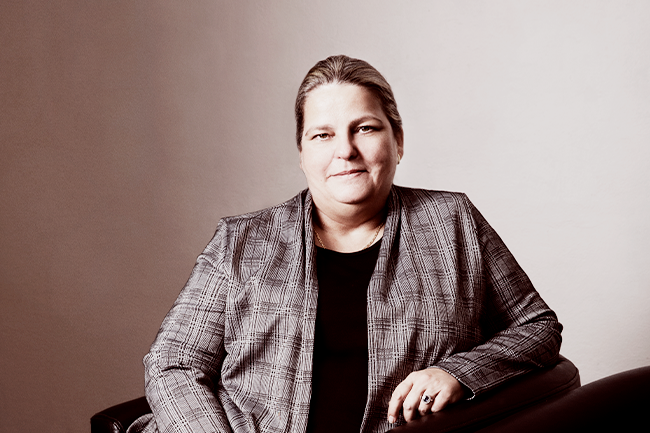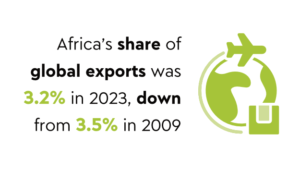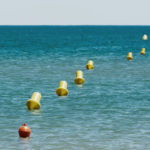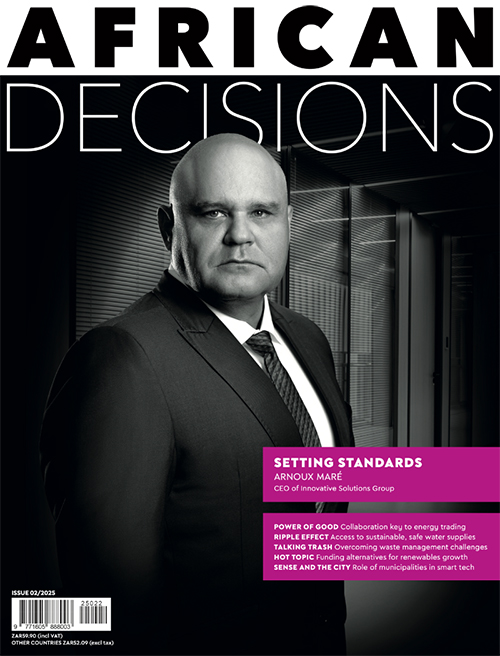It has been a tough year for all, and more so for the mining industry, with COVID-19 having a big impact on production. For nations such as Burkina Faso, Côte D’Ivoire, the DRC, Sierre Leone and Zimbabwe, the pandemic knocked back the potential growth expected from cross-trade opportunities with more-developed nations.
These are the same countries that Invincible Valves has been targeting in its diversification strategy, and – regardless of the pandemic and any other impactful negative catalysts – the South African supplier of local and imported valves for the mining, petrochemical, power-generation, water, sewage and general industries for more than 30 years is not about to depart from its growth plan or its efforts to support existing African clients and agents.
‘In fact, we remain confident in the African market’s ability to recover as it has done in the face of some enormous challenges over the past decade,’ says Invincible Valves MD Pam du Plessis. ‘I do find it particularly sad, however, that pre-pandemic the African continent was set to explode with development and foreign direct investment inflows. Regardless, this will likely play in our favour, not least because we are a South African-owned and -operated organisation and therefore exposed to the same trials and tribulations as our continental collaborators, and, also similarly, we do not run in the face of the challenges that are unique to the continent.’
Challenges over the years have been overcome by Invincible Valves’ incredible optimism and strategies that accommodate its clients’ diversified cultural and regulatory frameworks. For example, currency fluctuations are considered and factored into decisions, as is the different red tape in each nation with regard to regulations around imports. And, rather than setting up its own operations in centralised hubs, Invincible Valves has preferred to appoint local businesses as its distributors.
‘I see this as the most responsible way to trade in Africa. Not only does it allow new businesses to grow and provide employment, it also gives them enough experience to attract other investors and different, hopefully non-competitive, product lines to their basket of offerings. We also provide them with training on our valve ranges and their optimal applications, and encourage them to be innovative in how they promote and sell our product to their local market,’ she says.
The training itself is very comprehensive because, as can be expected, there is a technical aspect to the valve lines that require a deeper understanding and expert comprehension. Invincible Valves has thus developed its own ABET-accredited training facility at its South African base in Germiston, Gauteng, where it provides South African Valve and Actuator Manufacturers Association training courses. On offer are curricula such as introduction to valves, working with valves and control valves. ‘Trainees also spend many weeks on our site in Germiston, acquiring hands-on experience, being exposed to the valve in component form, and gaining knowledge of the full working of all the values we supply. It’s all about the touch and feel, which is a crucial element in gaining a deeper instinct around these crucial components,’ says Du Plessis.
And, to ensure that agents are able to manage their businesses effectively, the company has also included a Basic Business Skills programme. ‘This covers aspects such as communication, buying and selling and – an oft-forgotten aspect of business – that of emotional intelligence,’ says Du Plessis. As part of its CSI programme, Invincible Valves also presents the business course to local technical high school students, and further extends a helping hand to disadvantaged schools with upgrades to classrooms and by offering bursaries.
‘You cannot operate in Africa without tackling the issues that affect the day-to-day lives of employees, and all those with whom you do business,’ says Du Plessis. ‘It’s about sharing knowledge and providing, if you can, the platforms to advance an individual’s growth, which in turn uplifts communities. This has benefits for everyone and, aside from the feel-good factor, it challenges us all to become better human beings.
‘Ultimately though, we want our agents and employees to be able to effectively communicate with clients and understand the needs of the market. Agents especially are seen as a crucial aspect of our business and we constantly review our relationships with them to ensure continuity, like-minded thinking and dependability,’ she says.
‘Dependability is an aspect that mines, particularly, have a great need for. When a valve requires replacement, operators need to ensure as little disruption as possible to their processes, and while it may be that our agents don’t keep a huge range on their shelves, we are able to replenish or deliver speedily – no matter where in Africa the valve is required.’
It is not just the mining sector that Invincible Valves is responding to either. Water-infrastructure projects, such as slimes dams, reservoirs, and wash/waste-treatment plants for example; the petrochemical, power-generation, sewerage and other general industries are also under pressure to ensure uninterrupted operations and require valves that have earned a reputation for being reliable.
‘Valves have a huge role in preventing investments from shutting down, and are designed to help optimise flow through pump stations and assemblies,’ says Du Plessis. ‘The value of a valve lies in it being able to ensure purity and increase reliability to the end-user, and therefore should be corrosion resistant and easily maintained.’
This is the basis on which Invincible Valves created its own range – Inval, which is proving to be extremely popular given it was designed for the rugged African environment. What has manifested with Inval, however, is that Invincible Valves is now competing with its other product ranges. ‘It’s not really a problem though,’ says Du Plessis. ‘After all, we stand behind all our brands, imported and locally produced, and wouldn’t be marketing them if they were substandard.’
The range of valves supplied by Invincible is vast and includes actuators; ball, butterfly, check, control, diaphragm, foot, gate, knife gate, level-control, needle, non-return, pinch, pressure-reducing and pressure-relief valves; rubber bellows, chain wheels, hydrants; and associated accessories and instrumentation parts. The company also provides in-house drilling, reconditioning and rubber-lining facilities, as well as being geared to drill, strip, repair, rubber-line, assemble and test all valve types. Testing is a crucial aspect because, while there have been few changes in recent years in terms of valve design and selection or operation, technology is changing the systems in which valves operate.
Custom valves and custom-designed allied products, although not heavily in demand currently, are also catered for by Invincible Valves. Bespoke valves are likely to be required by largely West African mining houses, where gold mining continues to produce more of that ore than any other region in Africa at this time, says Du Plessis.
‘What our research shows is that valve users prefer to procure from one reliable agent or supplier. In effect, they want a one-stop shop, and this makes sense, particularly for operators in remote areas, where mining tends to take place. New suppliers do therefore struggle to enter this market, and it’s a hard journey for them in challenging the existing status quo to prove themselves. The valve sector is also quite a tricky business because, as previously mentioned, it’s not simply about supplying a valve; you have to understand all the complementary [mechanics] of a fluid transportation system. The positioning of a valve is a big part of this because if inaccurately placed there will be negative effects on life expectancy, maintenance and system efficiency.
‘This, ultimately, is what we stake our reputation on – being able to respond with the right valve for the right flow.’


















